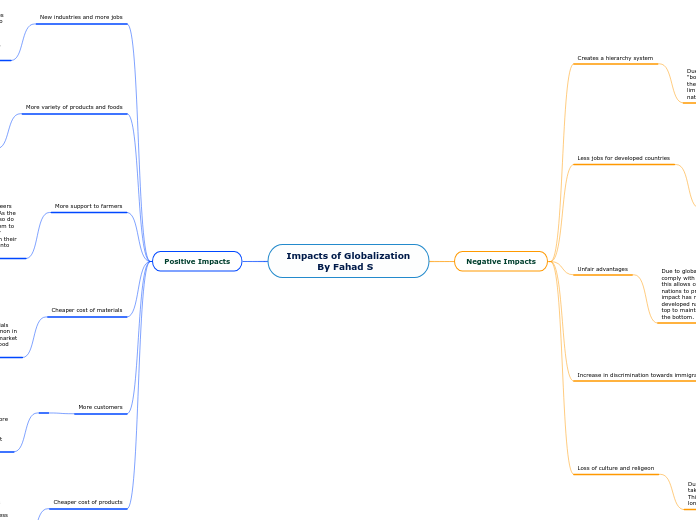by Fahad Shafiq - Rick Hansen SS (2542) 4 years ago
413
Impacts of Globalization
Globalization significantly influences various aspects of modern society, creating a more interconnected global economy. It allows countries to import and export a wide variety of products, providing consumers with an extensive range of foods and goods from around the world.









